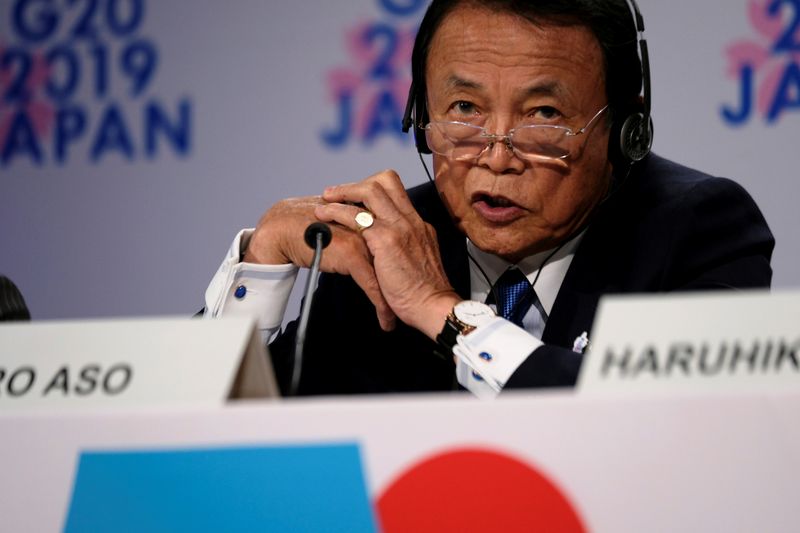By Tetsushi Kajimoto
TOKYO (Reuters) - Japan has set aside $92 billion in emergency budget reserves to prepare for a "protracted war" against the novel coronavirus, Finance Minister Taro Aso said on Monday, detailing some spending from the massive pool of money seen by some as opaque.
Aso made the remarks as the government presented parliament with the second extra budget for approval to fund a $1.1 trillion stimulus package to combat the pandemic, which featured the 10-trillion-yen ($92 billion) reserves set aside for contingencies.
"While setting eyes on a protracted war, we must take all possible measures and top up emergency reserves in order to flexibly respond to changes in the situation," Aso said.
"At least 5 trillion yen is needed in case the second and third wave of infections turn the situation very severe ... Another 5 trillion yen must be secured so that we can swiftly respond to any situation," Aso said in a speech in parliament.
Half the 10-trillion-yen reserves would be spent to help firms keep employment and pay rents, and to boost medical care, he added.
It was unprecedented for the government to detail spending from emergency budget reserves.
The rare move followed criticism from the opposition that the government could tap the massive pool of money at their own discretion without parliament checking, which would undermine fiscal discipline and public finances.
Unlike other budget items which require prior scrutiny by lawmakers, the law stipulates emergency reserves can be spent without prescreening, allowing the government to meet spending needs flexibly in the event of disasters and contingencies.
In Japan, the cabinet decides how the reserves will be spent, and needs to report to parliament only after spending.
The 10-trillion-yen emergency reserves account for roughly one-third of direct spending worth 33 trillion yen that funds the stimulus. It stood about 20 times an average amount annually earmarked in the past two decades, finance ministry data shows.
The government used to set aside 350 billion yen for emergency reserves in an initial budget. It then topped up the amount as needed when disasters struck such as the 2009 global financial crisis and the 2011 Fukushima nuclear disaster.
Emergency reserves have totalled 12 trillion yen for the current fiscal year, when taken together with what was earmarked in the initial budget and the first stimulus adopted in April.
Decades of heavy spending to stimulate a stagnant economy has left Japan with the industrial world's heaviest public debt burden at more than twice the size of its economy.
